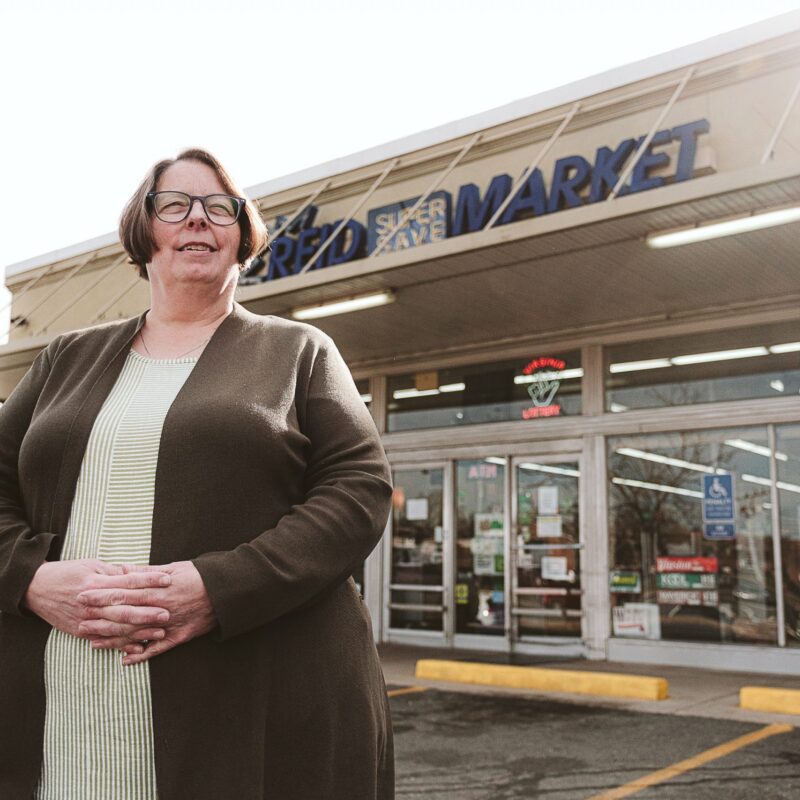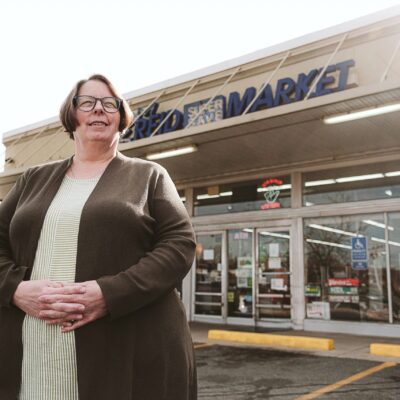For the better part of a decade, members of the Virginia Independent Consumer and Farmers Association (VICFA) have been bringing local attention to what they say are grave threats to small farmers—namely, excessive government regulation. Locavores may have raised their hackles last week when reading that the Obama administration released a series of new proposals to regulate a number of foods, including eggs, poultry and beef. (Proposals for melons, tomatoes and some greens are also in the works.) What does it mean for local eggs produced on small farms if the FDA will now require egg producers to test routinely for salmonella, and to refrigerate eggs on the farm and during shipment? Could it mean the end of your fresh dozen purchased from a City Market stand?
|
“The problem of industrial factory farming remains,” says Deborah Stockton, VICFA spokesperson. |
Were the regulations written with no distinction between large and small farms, VICFA’s Deborah Stockton says they would either “wipe out” local farmers who sell eggs or force the market underground. But the concerns of groups like VICFA seem to have been recognized within the proposals: The FDA has stipulated that farms with fewer than 3,000 laying hens would be exempt from the new rules on salmonella testing and refrigeration. The exception reflects small farms’ reduced operation scale and the uneven costs these would levy on them.
According to FDA documents, following the release of a 2005 egg-regulation draft which incorporated this exemption, the FDA received concerns that “these small flocks are less likely to have adequate [salmonella] prevention measures and that excluding them would be contrary to the public health goal of the rule.” But the FDA concluded that the commenters “did not provide data to support these concerns” and retained the small-farm exemption in the final draft of the action plan they released last week.
Stockton maintains that the idea that small farms are responsible for a significant amount of the foodborne illness in America is “an out-and-out lie—99 percent of it comes from factory farms which generate sick animals and unhealthy food that is susceptible to contamination.” In a town like Charlottesville, where many travel to farmers’ markets for fresh, local eggs, this high-level debate has tangible repercussions. For now, the eggs go free.
Stockton suggests that “The problem of industrial factory farming remains. It is not a fixable system. It is inherently flawed and unsafe and no amount of regulations can change the nature of Nature, which is what they are ultimately fighting, not working with.”
C-VILLE welcomes news tips from readers. Send them to news@c-ville.com.






